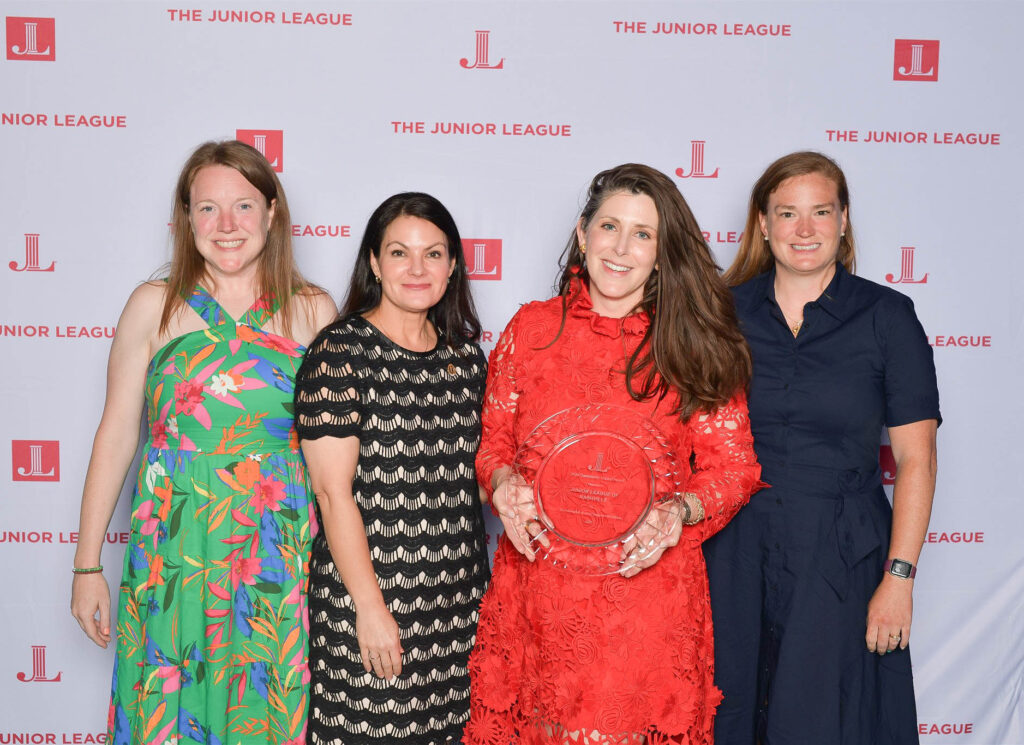

The Junior League of Nashville
The Junior League of Nashville Nonprofit Symposium was launched last year in response to the lack of leadership training aimed at nonprofit professionals. The Nonprofit Symposium became an extension of their annual Women’s Leadership Summit, allowing JLN to provide top notch speakers and content to their nonprofit peers. This event focused on nonprofit professionals and board members from across the Middle Tennessee area. The training also served as a collaborative effort with JLN's partner agencies to strategize on service implementation for the upcoming league year. The event consisted of nonprofit-specific content in the areas of PR and Marketing strategies, networking, how to lead a 'learning organization', and a panel of Nonprofit CEOs. The Nonprofit Symposium served as a catalyst for learning, connection, and collaboration, all at no cost to the attendees or their organizations. The training also served as a collaborative effort with JLN's partner agencies to strategize on service implementation for the upcoming league year. Additionally, the symposium also served a holistic approach of allowing the attendees to collaborate with each other. Congratulations to the Junior League of Nashville!
Award Recipients in Division 4 have 501+ Actives + Provisionals.
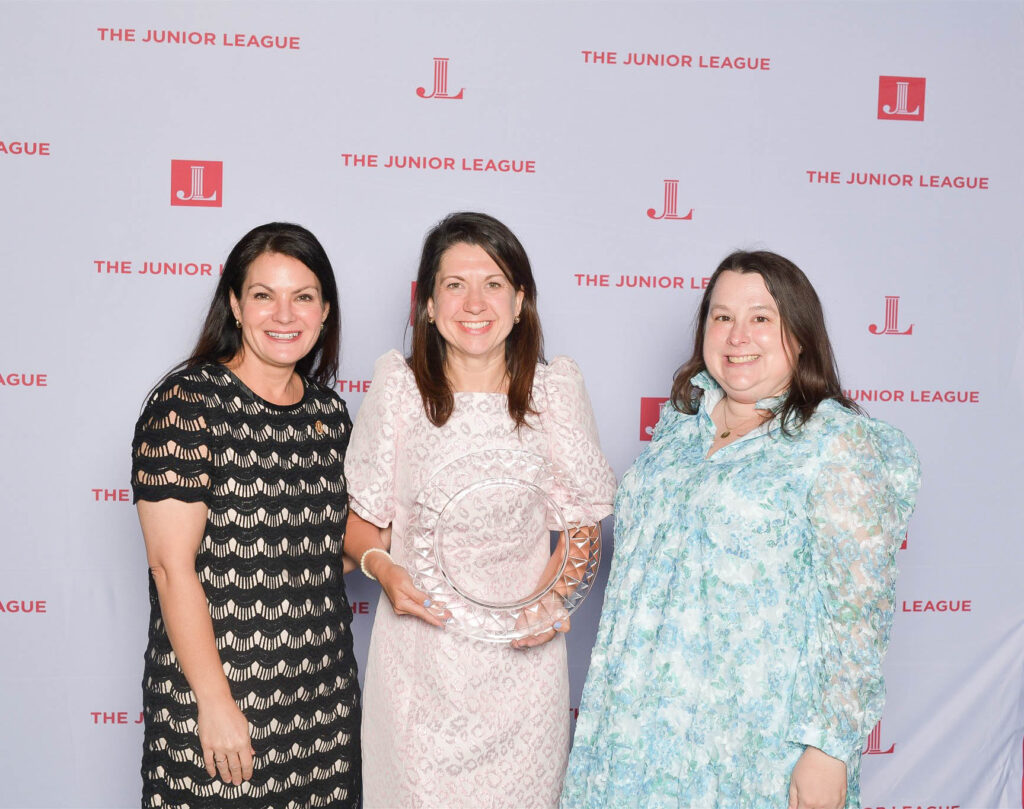

The Junior League of Northern Virginia
The Junior League of Northern Virginia recognized the need to reexamine its community focus to create a stronger impact and foster deeper connections among members. After much research and input from their members, JLNV selected a new focus area: Women Helping Women: Providing access to essential services and professional development opportunities for women and families. By prioritizing access to essential services through their Period Pantry Campaign and providing professional development opportunities for women and families, this focus area directly addresses the empowerment and advancement of women. Expanding its focus to Women Helping Women also enabled JLNV to launch the inaugural AJLI Junior League Teens program in September 2024. The program is meant for high school students and fosters leadership development, volunteerism, and community impact among young women. The JLNV Teens program has not only provided young women with critical skills and experiences but also strengthened connections between JLNV members, sustainers, past presidents, and the broader community. By inspiring the next generation of leaders, JLNV Teens helps ensure the Junior League's mission endures for years to come. Congratulations to the Junior League of Northern Virginia!
Award Recipients in Division 3 have 151-500 Actives + Provisionals.
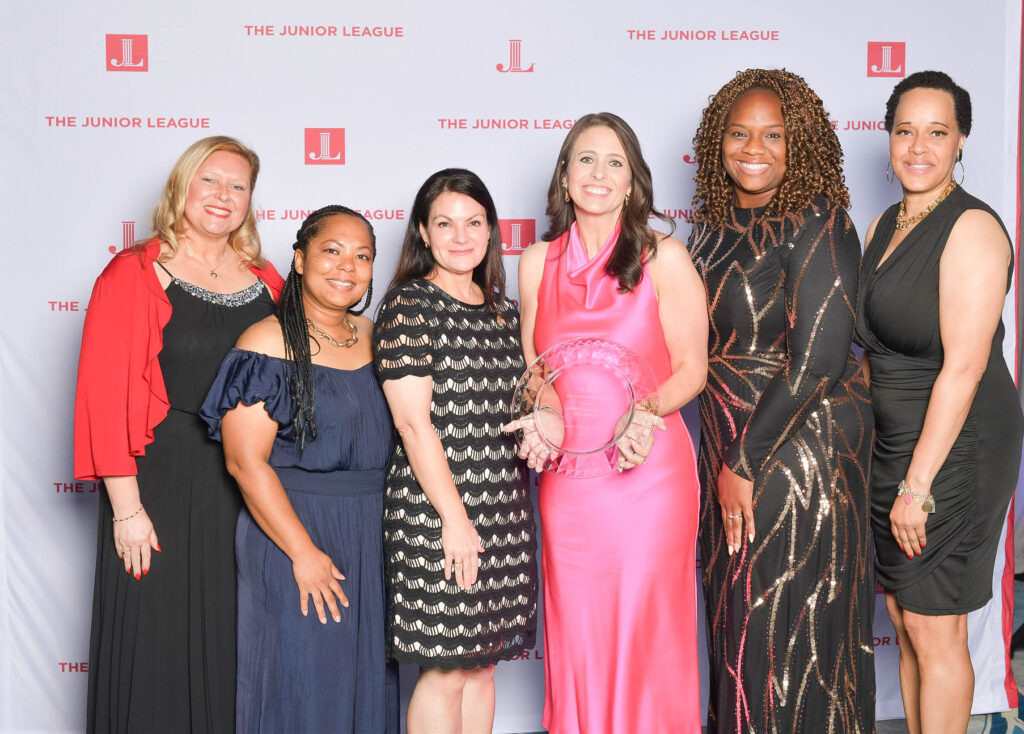

The Junior League of Columbus, GA
For The Junior League of Columbus, GA’s, community impact is a year-round event. JLC plans, organizes and executes multiple community events addressing needs they’ve identified in their community. JLC’s Georgia's Diaper Bank initiative addresses a critical yet often overlooked need in our community-access to affordable diapers. Fantasy Flight provides children facing adversity with an unforgettable experience around the Holidays, including a simulated "flight" to the North Pole, festive activities, and a special visit from Santa. Project Prom offers free new and gently used prom dresses and accessories, ensuring that every student-regardless of financial circumstances—can attend prom with pride and confidence. The impact goes far beyond the events themselves. Each event develops members' leadership skills through hands-on project management, collaboration, and community engagement. The committees in charge of planning and executing these events are three of the most popular in the League. Congratulations to the Junior League of Columbus, GA!
Award Recipients in Division 2 have 51-150 Actives + Provisionals.
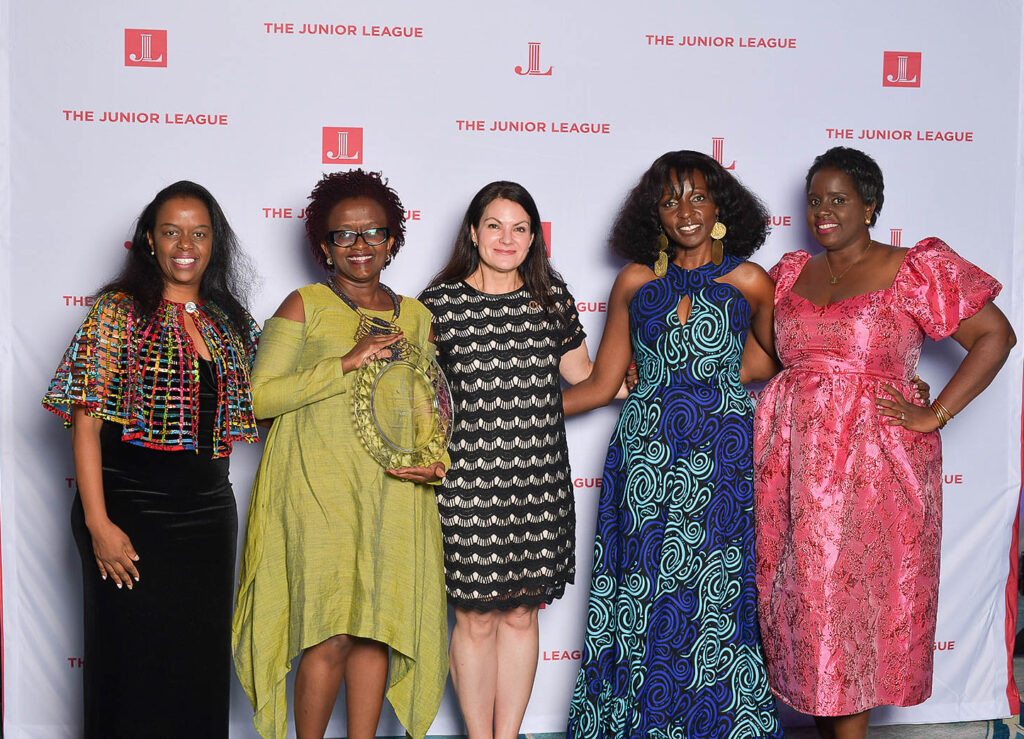

For the past three years, the Junior League of Nairobi has partnered with Toto Care Box to empower young and disadvantaged women with essential resources that enhance newborn survival rates, improve maternal health outcomes, and promote safe pregnancy experiences. Through the distribution of life-saving baby care kits and maternal health education, this initiative has significantly increased prenatal care attendance, facilitated safer deliveries, and improved maternal knowledge of newborn care. The baby starter kit includes 18 essential newborn supplies, a safe sleeping box, and hygiene products. It is paired with comprehensive maternal health education that covers pre and post-natal care, newborn health, and safe delivery practices, equipping vulnerable mothers with the tools and knowledge necessary for safe motherhood and reducing maternal and newborn mortality rates. To date, JLN has supported over 1,100 mothers and babies. Of those, 76% have attended at least 4 prenatal visits, meeting WHO-recommended maternal health targets, 100% have delivered in a healthcare facility, and 22% have been teenage mothers, a highly vulnerable demographic. Congratulations to the Junior League of Nairobi, Kenya!
Award Recipients in Division 1 have 14-50 Actives + Provisionals.
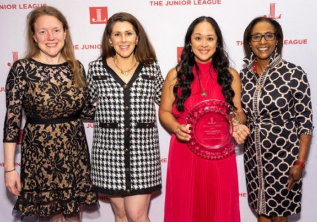

The Junior League of Nashville entered the 2022-2023 year with the goal to find a new focus area that would be more meaningful and impactful. After extensive research, The Junior League of Nashville decided to keep their focus broad due to the interchangeability between social issues that rose to the top. When it came to finding new community partners, the Junior League of Nashville took an enhanced approach to outreach and diligence. This led to 50 more community partner applications than the prior year. This massive increase is also exemplified in their expanded service beneficiary reach – they plan to serve over 121,500 individuals, compared to their current 6,148. They also reduced the median age of proposed community partners to 12 years compared to their past median age of 30.5 years. To top it all off, to ensure they were helping community partners that most needed their help, they reduced their community partner’s median reported income to $203,523 compared to $3,501,642.
Congratulations, Junior League of Nashville!
Award Recipients in Division 4 have 501+ Actives + Provisionals.
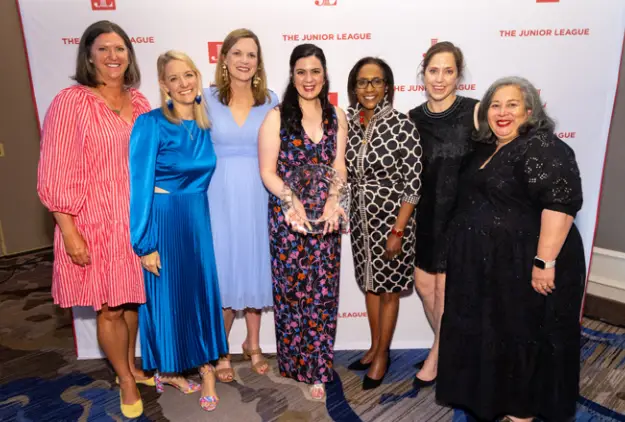

The Junior League of New Orleans' Diaper Bank is entering its 10th year, from humble beginnings in the back of JLNO’s headquarters to towering stacks ready for sorting at a warehouse facility. What really sets the Junior League of New Orleans’ Diaper Bank apart from others is that they have expanded beyond diaper needs to also include period poverty and access to adult incontinence products. From its inception, JLNO has prioritized member engagement, members have led, facilitated, and coordinated all the elements of the project operations from product drives and inventory management to collecting, sorting, and distributing. The size of their impact is truly astounding – The JLNO Diaper Bank has distributed close to 10 million products to those in need! To put this into perspective, the national diaper bank average for diapers distributed annually is 861,445. This means JLNO has a 16% higher distribution rate than the national average and showcases the immense impact of their collective efforts.
Congratulations, Junior League of New Orleans!
Award Recipients in Division 3 have 151-500 Actives + Provisionals.
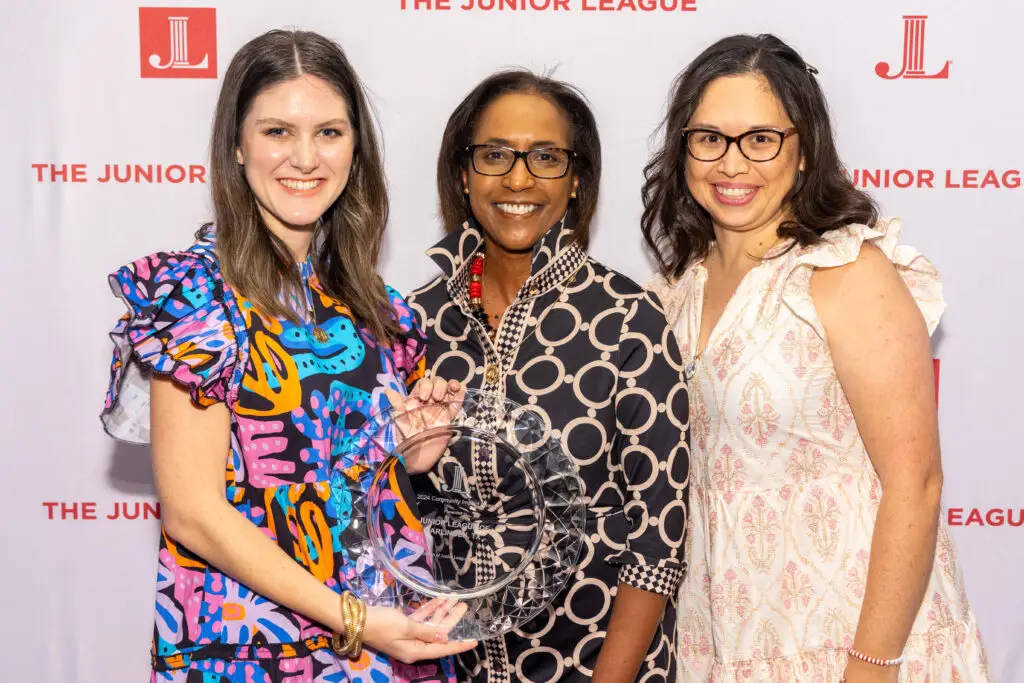

The Rio Grande Valley ranks as one of the most overweight and obese regions in the country. In Hidalgo County, one of the three counties within the RGV, the obesity rate is 42.9%, higher than the Texas state average of 36%. In an effort to promote healthier lifestyles and overall well being, the Junior League of Harlingen, TX’s KidFit Festival and Fun Run was founded 12 years ago. Working in collaboration with Harlingen parks and recreation department, local city government, school districts, non-profits, and businesses, the KidFit Festival and Fun Run has a large range of activities for children of all ages to participate. To increase participation and create some friendly competition, the Junior League of Harlingen has local public, charter and private schools compete for most registered participants. A testament to member engagement, every member from The Junior League of Harlingen volunteers at this event.
Congratulations Junior League of Harlingen!
Award Recipients in Division 2 have 51-150 Actives + Provisionals.
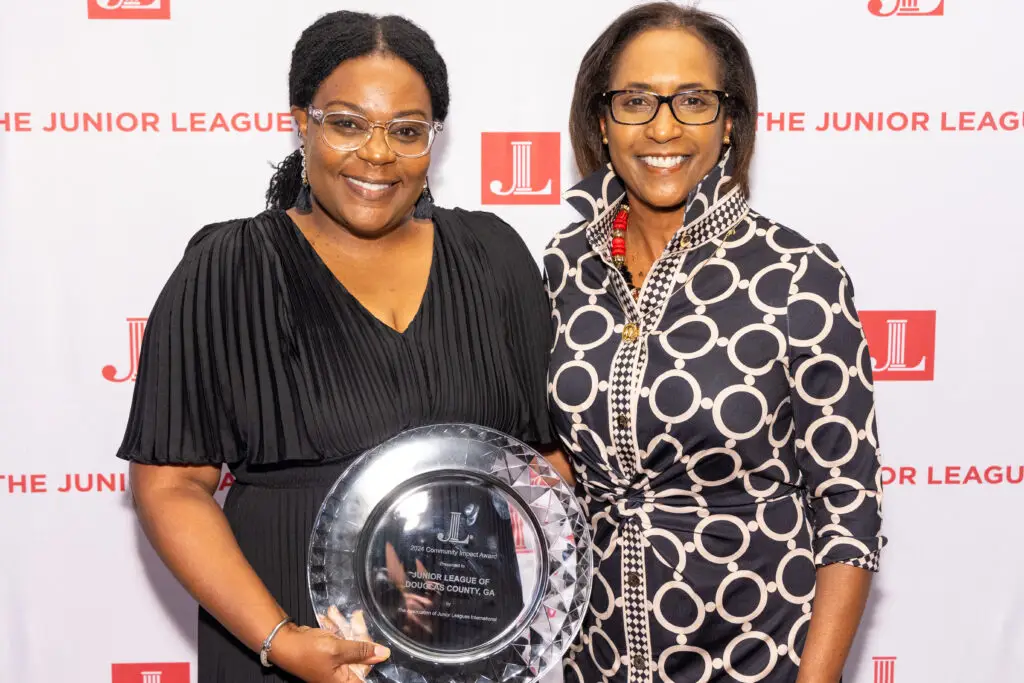

The Junior League of Douglas County’s “Clean Clothes Today, for a Successful Tomorrow” shows us how collaborating with community stakeholders can go a long way to enhance your impact, especially when you are a small League. At the center of this initiative was collaboration – The Junior League of Douglas County worked with school ambassadors and counselors, the juvenile justice system, the homeless coalition and local laundromat owners and staff to make their free laundry day for residents happen. While the League traditionally focuses on literacy among children, they found there was a connection between families being unable to wash soiled clothes and children’s school absences, which affects their learning/literacy. The Junior League of Douglas County, GA raised over $5,000 offer a FREE Laundry Day to 100 community families, helping them wash nearly 750 loads of clothes over the course of three months.
Congratulations to the Junior League of Douglas County, GA!
Award Recipients in Division 1 have 14-50 Actives + Provisionals.
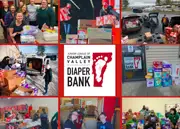

The Junior League of Champlain Valley's Diaper Bank Program became the first Vermont affiliate of the National Diaper Bank Network in 2019. And they haven’t slowed down since! Their accomplishments have been profound in a League of just 65 members total, one of the smallest AJLI Member Leagues.
JLCV’s initial goal of the Diaper Bank was to partner with five community agencies to distribute 100,000 diapers annually. Five years later, the Diaper Bank has grown exponentially. The JLCV Diaper Bank operates out of a 1,390-square-foot warehouse and serves more than 85 community partners in 13 of Vermont’s 14 counties. The JLCV has distributed more than $2.1 million diapers to Vermont families.
As a result of their mission-focused volunteer work and drive, the Vermont Legislature has even recognized the League’s work and awarded the JLCV $300,000 in funding to support statewide distribution.


The 2023 Community Impact Award (Honorable Mention) goes to The Junior League of Billings, MT, for their Junior League of Billings Free Laundry Project.
Since 2015, the Junior League of Billings, Montana has set out to address the basic but vital human need of having clean laundry. Each month, the JLB serves, on average, 40-60 families during their laundry events. Each year, they impact thousands of individuals and distribute over $7,000.00 at these events throughout the year. Truly fantastic work, Junior League of Billings!


The 2023 Community Impact Award (Honorable Mention) goes to The Junior League of Austin, Texas for their Signature Impact Program, Coats for Kids.
This year marked the program’s 36th year and its 1 millionth coat distribution. The program boasts strong connections with its community partners and a huge turnout from volunteers within and the surrounding community. In 2022, 60 schools, 69 businesses and 20 community organizations hosted Coat drives for Coats for Kids. Over 450 JLA members volunteer each year alongside over 1,000 other volunteers from the Austin community for over 4,500 hours. The JLA surpassed their 2022 coat goal of 30,000 to distribute over 32,000 new and gently used coats to Central Texas children in need.
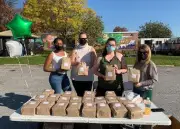

In fewer than three years and during a global pandemic, The Junior League of Wilmington has made the issue of period equity a priority in Delaware through direct service, advocacy, and coalition building.
Junior League of Wilmington Members have become powerful catalysts for change in the Delaware community. They rolled up their sleeves, learned how to operate a basic needs bank, set-up partnerships and write memorandums of understanding, create gender-inclusive marketing materials, and craft successful grant applications.
The result of their tireless work? The Junior League of Wilmington now has Memorandums of Understanding with 10 partner organizations, has received $32,000 in grant funding to date, and donates an average of 26,000 products every month, benefitting 880 people—far exceeding their original strategic plan goal of 200 people per month. They’re on track to donate a quarter of a million products this League year alone. In addition to direct service, the Junior League of Wilmington has contacted state legislators, developed rapport with city council members, and presented public testimony at legislative committee hearings, the Junior League of Wilmington is working toward long-term, systemic change in the area of affordable access to period supplies.
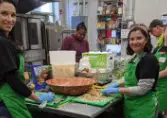

The Junior League of Philadelphia's Apple a Day Healthy Living initiative is a multi-tiered and multifaceted community initiative that creates positive impact on the health and wellness of adults and children in the Greater Philadelphia area. Now in its eighth year of operation, this community program supplies not only interactive educational opportunities for their community, but also increases the regions capacity to supply and distribute healthy food to families in need.
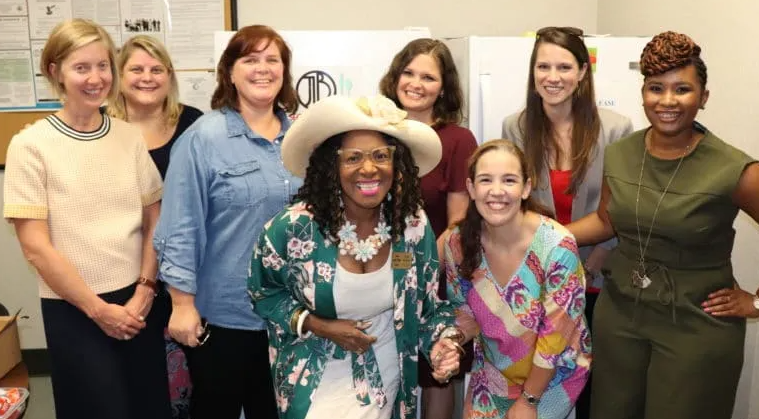

When a Junior League of Birmingham member heard an NPR story about an innovative program in Spain addressing food waste and food insecurity, she knew there was a similar opportunity in Birmingham, the biggest city in a state that often ranks in the top five for “hungry states.” While a second-harvest type organization in town collected large portions of food from groceries for redistribution with the local food bank, literally tons of food from smaller catering events were being thrown away. Meanwhile, we knew homeless and nearly homeless youth from ages 16-22 were falling through the cracks.
To fill these gaps, The Junior League of Birmingham created Second Servings—a program to redistribute food waste to a vulnerable population who often doesn’t receive such assistance.
JLB partnered with two agencies serving vulnerable youth, Project Hope and Youth Towers. They also partnered with corporate cafeterias, restaurants, and caterers. This addressed both supply and demand.
JLB provides leadership from within. Volunteers establish and maintain partnerships with excess meal providers and supply the boots on the ground to deliver meals to partner agencies. Because JLB partners with those who supply the food as an intermediary, financial outlay has been minimal.
Even as a young program, results have been significant. In 2017-2018, its first year of implementation, the program rescued more than one ton of food, equaling more than 1,600 meals for hungry, underserved youth. In just over two years, more than 8,900 pounds of food have been rescued and more than 7,000 meals have been served.
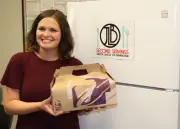

Backpacks, new shoes and pencils aren’t the only things to consider as students return to school. North Carolina law mandates that children be current on immunizations and all kindergartners have proof of a physical exam or health assessment within 30 days of starting school in order to enroll and stay in school.
Since 1996, The Junior League of Charlotte (JLC) has partnered with the Mecklenburg County Public Health Department and the Charlotte-Mecklenburg School System to host Big Shots Saturdays throughout the month of September in order for students to meet the health deadlines set by the state.
For 23 years, the JLC has been the only nonprofit in Charlotte leading efforts to provide children with free immunizations and health screenings so they can enroll and stay in school. Additionally, the JLC provides free vision, hearing, and dental screenings at these events.
To date, Big Shots Saturdays has provided services to over 25,000 children. This community project has not only impacted the lives of thousands of children and families but also allowed the JLC to collaborate with the Mecklenburg County Health Department and Charlotte-Mecklenburg School System. The JLC has lofty goals for continued program expansion. Future plans include working with our two healthcare systems to offer additional Big Shots Saturdays throughout the city.
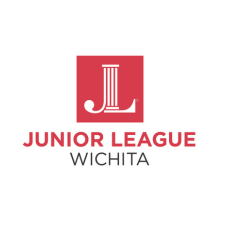

In 2008, the Wichita area experienced a surge in child fatalities. Outraged, determined and compelled to take action, The Junior League of Wichita members started work on a project that would combat child abuse through spreading awareness and intervention.
They began with a traveling puppet show, which has now educated over 30,000 third and fourth graders on child abuse and sexual abuse. As awareness has spread, the puppet show has resulted in the reporting of 54 cases of abuse or neglect.
In 2013, the Junior League of Wichita funded the training wing of the Child Advocacy Center of Sedgwick County. This Center provides services to 2,000 children and investigates 4,500 reports annually. Attacking another facet of the issue, the League engages their community with a project called Trash bag Handbag, which raises awareness and funds for children living in foster care – children at a greater risk for unreported child abuse.
The League has been able to accomplish incredible things with a number of organizations, including the Wichita Children’s Home, the Wichita Coalition for Child Abuse Prevention, Two Lives at a Time and ChildAbuseWichita.org, to name a few. As an example, through the partnership with Two Lives at a Time, the Junior League of Wichita purchased a van for local nurses to distribute self-care items, diapers, formula, clothes and safety equipment to young mothers still in the process of transitioning to independence. The fruitful partnership provided $25,000 in scholarships to go toward the support of young parents attending college.
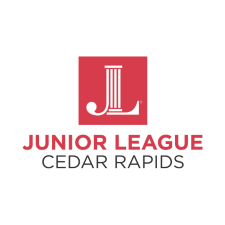

The Junior League of Cedar Rapids sprang into action upon discovering the harsh realities youth aging out of the foster care system face. The League found a need to teach skills to the youth, who are dramatically more at risk of exploitation, homelessness and addiction. They developed the Bridging the G.A.P project.
The G.A.P is a three-pronged strategy. G stands for Guiding youth to successful employment by teaching valuable life skills that increase employment opportunity; A stands for advocating for youth within the community by increasing awareness of their situation and communicating with legislature on state and local levels; and P stands for providing household items that youth who have aged out of the system need for independent living. Over the past seven years, this project has resulted in approximately 2,500 meals served, 150 suitcases and 300 backpacks donated, 30 life skill-training courses and 20 events conducted to support this vulnerable population.
The Junior League of Cedar Rapids made their success more effective through collaboration, partnering with Families Helping Families, Foundation 2, Foster and Adoptive Family connections and the Iowa Department of Health and Human Services. With their help, the Junior League of Cedar Rapids was able to provide incredible opportunities such as “Apartments in a Suitcase,” suitcases filled with household staples instead of the garbage bag of possessions many youth in the foster care system are given after aging out.
In 2018, Cedar Rapids members logged more than 1,500 direct project volunteer hours to this project; 110 individuals received scholarships through the League; and 150 lives were tangibly altered because of the efforts of the Cedar Rapids Junior League.
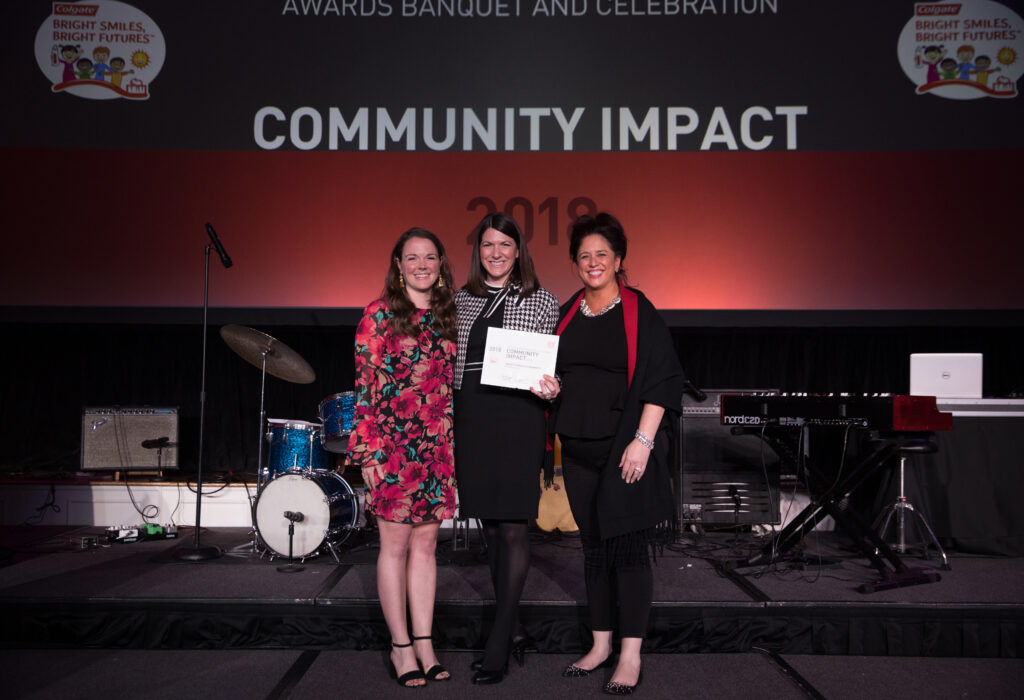

Refugee families are often some of the most overlooked groups in any community. Dropped into a foreign place, often in the most traumatic of circumstances, these families are often left to fend for themselves. What few services are offered on a federal or state level usually only last for the first 45 to 90 days of their resettlement in the United States. After that brief window, these families are left alone to navigate complex systems, new cultural norms and immense language barriers.
While many of Cincinnati’s local organizations provided some services for these families, none offered a comprehensive referral support system for people who often speak limited English and have experienced trauma.
The Junior League of Cincinnati saw a huge need to close the gap between the services being provided and refugees’ immediate and long-term needs. It wasn’t just about stabilizing them and giving them a sense of support, but mapping out the pathways to self-sufficiency, and promoting acceptance on a larger community level through volunteerism.
The JLC decided the best way to lead this initiative was to create a non-profit organization with a clear identity and mission. And with that, RefugeeConnect was born.
Working one-on-one with refugees to ensure successful acclimation into their new home, the organization also provides technical assistance to local businesses, non-profits, and volunteers to increase cultural competency and holistic services directed towards these refugee communities.
RefugeeConnect has introduced a variety of interconnected programs, including the “Stories of Survival” Speaker Series, Ambassador Volunteer Training and the Virtual Resource Center—as well as scholarships and community education campaigns.
By celebrating these unique cultures, RefugeeConnect has helped developed long-term relationships reaching over 2000 participants in the past year.
To this day, the JLC is the only organization in Greater Cincinnati working to shape and empower the entire refugee resource ecosystem.


For years, many different groups in Angelina County, TX had sponsored a back-to-school supply giveaway to provide backpacks, school supplies and health screenings to families in need, allowing under-resourced students to start the school year on an equal footing with other students. However, with all of the different events being held all over the county it made for a huge duplication of services and an inefficient use of resources.
The Junior League of Lufkin consulted with other service agencies in the community, visited other school-readiness projects, and began formulating the plan for its fully centralized Back to School Bonanza.
Through networking, collaboration and community involvement, B2SB is now the main back to school event in Angelina County. Currently, there are fourteen partners working together to host the event. Each organization provides committee members to oversee the year-long planning process, and an enormous crew of volunteers for the day of the event.
B2SB is the largest endeavor the JLL has ever taken on, and while the League provides the bulk of monetary support and coordination, the event is truly the result of a community-wide effort. One church and one non-profit agency have partnered with the JLL since the initial Back to School Bonanza, and each year additional organizations and community partners are added. Funding for the project comes from the entire community, including businesses, individuals and local foundations.
Now in its 7th year, the project continues to blossom in scope and community participation. In 2017, B2SB served over 3,000 children, providing backpacks filled with school supplies, pieces of school uniforms, new shoes and socks, hygiene supplies, haircuts, and head check and dental screenings.
The program has served to promote the JLL as an organization that not only leads, but knows how to collaborate with others to achieve the best results. The momentum of the event’s success has raised League engagement, propelled recruitment efforts and solidified the JLL’s central role in the community for decades to come.
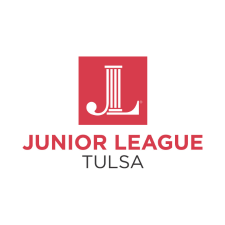

The Department of Justice says that Oklahoma incarcerates more women, per capita, than any other state in the nation. Alarmed by that statistic, The Junior League of Tulsa took action.
It’s easy to forget that most imprisoned women, in Oklahoma and elsewhere, have children they leave behind. Many incarcerated women have also suffered from poverty, domestic violence, child abuse, and an environment of excessive drugs and alcohol. Upon release, most will not have housing, a job, transportation, or even a driver's license.
That’s why JLT has partnered with Tulsa’s Resonance Center for Women, which helps nonviolent female offenders successfully transition out of incarceration.
For 10 years, JLT members have provided holiday events for Resonance clients and their families, hosting graduation ceremonies, and interacting with the women through done-in-a-day projects.
2016 was marked by the opening with Resonance of a full-service lunch restaurant called Take 2 Café that offers six-month employment and housing for recently released women. Take 2 now averages 120 customers each day, grosses monthly proceeds of almost $30,000, and has housed and employed dozens of women who are looking to get their lives back together after prison.
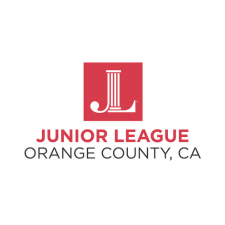

Foster care has long been an important focus for the The Junior League of Orange County, as it has been for many other Leagues.
But what JLOCC has achieved over the last decade demonstrates what can happen when a League thinks long term…and big.
It all started in 2006, when JLOCC eagerly supported an initiative by a community partner called the Orangewood Foundation to establish a residential high school for foster kids and other at-risk youth. Orangewood is one of the leading providers of services to foster youth and former foster youth.
Spring 2017, that school – called the Samueli Academy – graduated its first class.
Here are just a few of the things JLOCC did to make the Samueli Academy a reality and a success:


The Junior League of Collin County wins this year’s Award for Community Impact.
The JLCC has partnered with the Collin County Juvenile Probation Services (Juvenile Probation Services) to provide selected first time, nonviolent youth a structured mentoring program that specifically addresses behavior that will equip them with the tools to be successful after they are released from probation.
Curriculum was researched and developed to address issues for at-risk youth such as uncovering their unique personality traits, motivational influences, boundary setting, assertive and effective communication, managing negative emotions, positive self-image and media literacy.
The objective of these sessions is to provide positive interactions with League volunteers that help the youth navigate the topic material and curriculum. JLCC provides reliable mentors that participants can count on each month until they complete the program. This helps them develop trust and interpersonal skills. Participating in the program gives them a sense of accomplishment, increased self-esteem, self-confidence, and simultaneously builds upon good mentor-mentee relationships and increased communication skills via peer-to-peer sharing.
In the two years Juvenile Mentoring Program (JuMP) has been in place, 40 youth have completed the program and graduated. Of those that graduated, 100% have successfully completed probation. Due to the success of the mentoring and the positive impact seen in the graduates, Juvenile Probation Services asked the JLCC to expand from the original location in McKinney, Texas to a second location in Plano, Texas this year. Now the two organizations are in discussions about expanding into a third major Collin County city as well as adding parent education classes in each of the cities.
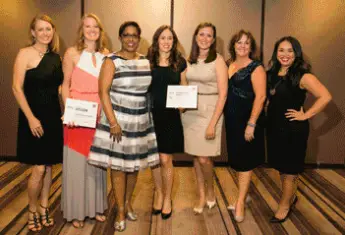

JLP currently offer KITK programming through four types of events:
The Junior League of Phoenix has lofty goals for continued program expansion. Future plans include a "Train the Trainer" event in Spring 2016 for youth development leaders from the Boys and Girls Club, and a Nutrition and Health Day event for 2016-17.
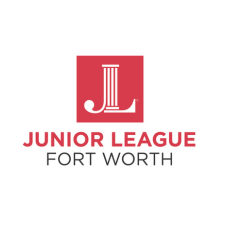

According to a study by the Community Foundation of North Texas, 45% of those returning from prison to Como, Fort Worth’s inner-city neighborhood, were returning to prison.
In this zip code ravaged by poverty, racism, crime and an alarming rate of recidivism, 25 percent of households are headed by single mothers and 42% live below the poverty line. By contrast, only nine percent of households in surrounding Fort Worth are run by single mothers and only 21% live in poverty.
Shelter, safety, education and hope were the ingredients essential to guiding Como residents toward a bright future. The Junior League of Fort Worth found a partner in a nonprofit called Opening Doors for Women in Need whose central mission is to empower women to become independent providers for their families.
Together the partners rolled out a two-part plan. The League provided $40,000 for the Nehemiah Project, which rehabilitated a vacant building for ODWIN’s clients, and then $75,000 to build a new four-bedroom facility, known as The House the Junior League Built, on an empty lot owned by the nonprofit. In addition, the League placed 25 volunteers who gave a total of 1,250 hours of their time in job search and interview training, clothing drives and community garden maintenance as well as cultural excursions.
To date, nearly 20 women have received—or are receiving—training in the program.
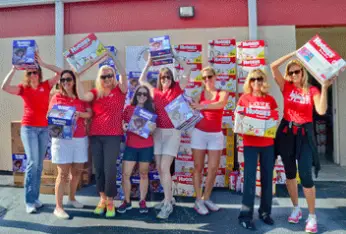

The Junior League of Boca Raton won the 2015 Award for Community Impact. A few years ago, the League was moved by the finding that one in three families nationally are unable to provide diapers for their children and that more than two hundred thousand families living in their very own community needed them on a regular basis.
The League formed a task force that found that a family needs nearly a thousand dollars annually to cover the cost of diapers, or four percent of poverty threshold income. To meet this need they founded the Boca Raton Diaper Bank, currently the only provider of its kind in South Palm Beach County. Run by a committee that vets its 21 partner agencies for screening families, handles logistics and arranges in-kind storage, it ensures that low-income families in South Palm Beach and North Broward Counties receive 50 diapers per child per month.
The League has built awareness of the challenges faced by under-privileged families by persuading Boca Raton Mayor Susan Whelchel to declare a Diaper Awareness Day and securing recognition from Florida Governor Rick Scott. In addition, the League has advocated for the inclusion of diapers in public policy’s definition of “basic human needs.”
Since its founding in 2011, the award-winning Bank has experienced significant growth. To date, some 600,000 diapers have been provided, and in August 2014, the bank made its largest monthly distribution to date, supplying 14 agencies with more than forty-thousand diapers.


The Junior League of Phoenix won this year’s Award for Community Impact for taking on the dire state of early childhood education in Maricopa County, Arizona with Raising Our Children’s Knowledge by Educating Through Science (ROCKETS).
Designed to foster the critical thinking, exploration and problem-solving skills essential to future academic success through hand-on science and math lessons, ROCKETS has hit several milestones since it began in 2010. The League has increased membership and community participation in the program; branded itself in the community; created a credible seminar for teachers; attracted funding; and delivered a high-quality science and math skills program to thousands of children. In addition, the League has deepened its partnership with the Children’s Museum of Phoenix, which it helped build and where it now maintains a ROCKETS classroom.


Issue Area(s): leadership development, disaster recovery, voluntarism
Awards: 2012 Community Impact Award
Metric of Success: In just three years, 329 participants were successfully trained for active roles on 60 individual nonprofit boards.
Overview
Recognizing that much of the effort to rebuild New Orleans would fall on not-for-profit organizations—and that Katrina had left many of the city’s nonprofits struggling to survive—The Junior League of New Orleans developed a six-week board-training program called Get on Board that prepares individuals who want to become board members of local nonprofits with the confidence and skills needed to get the job done.
Community Partners
How it Works
Get on Board workshops explore topics ranging from board roles, fundraising, and fiduciary responsibilities to strategic planning and leadership development. Course modules are taught by well-known local experts in their fields, lending credibility to the program. Graduates can choose to be matched by JLNO with a local nonprofit for a board internship or board service.
What’s the Impact?
By the close of the 2011 session, the third year in the program, approximately 329 participants were successfully trained for active roles on nonprofit boards, and nearly 60 diverse nonprofit agencies within the Greater New Orleans area had benefited directly from their partnerships with JLNO. For the third year in a row, high interest in the program resulted in waiting lists for participation, with scholarships available to defray participant costs.
Additionally, Get on Board has provided a major branding tool for use with other New Orleans area nonprofits and corporations to educate them on the benefits of partnerships with JLNO.
The program’s success also can be seen in how participants describe their experience. More than 90 percent of graduates say they feel prepared for successful board service.
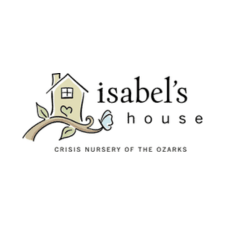

In 2010, The Junior League of Springfield, MO won the Community Impact Award for Isabel's House, The Crisis Nursery of the Ozarks.